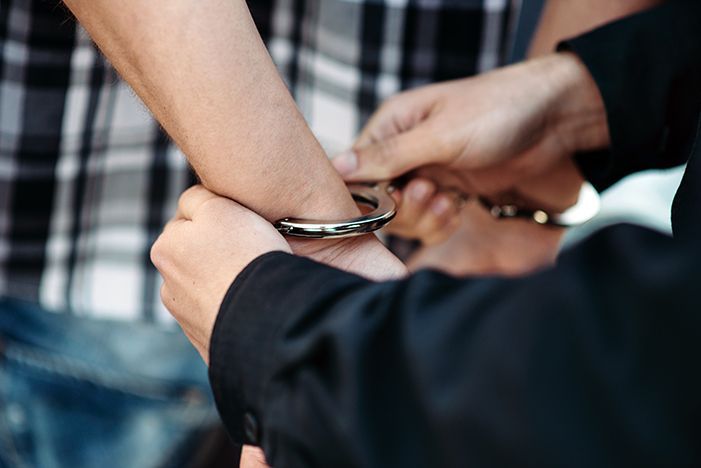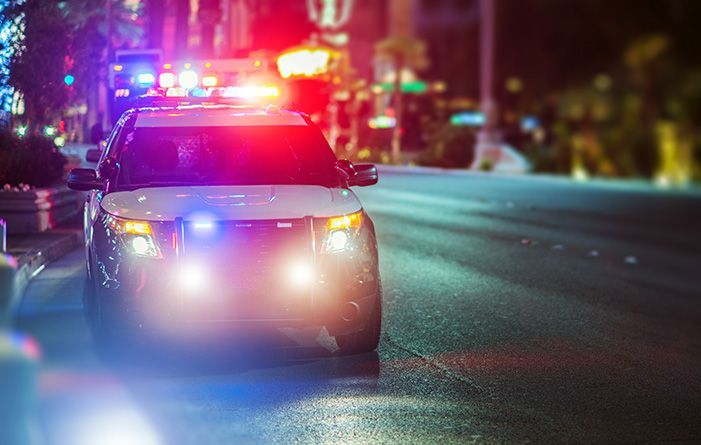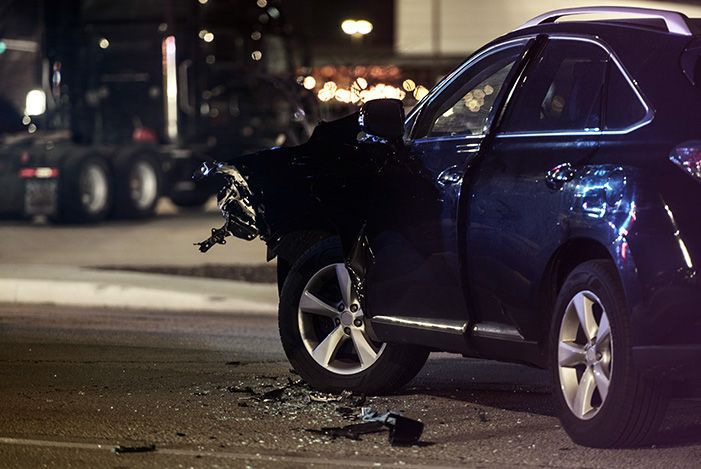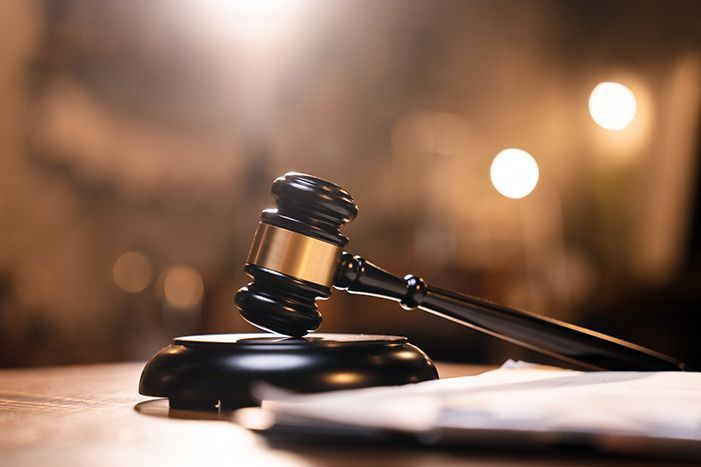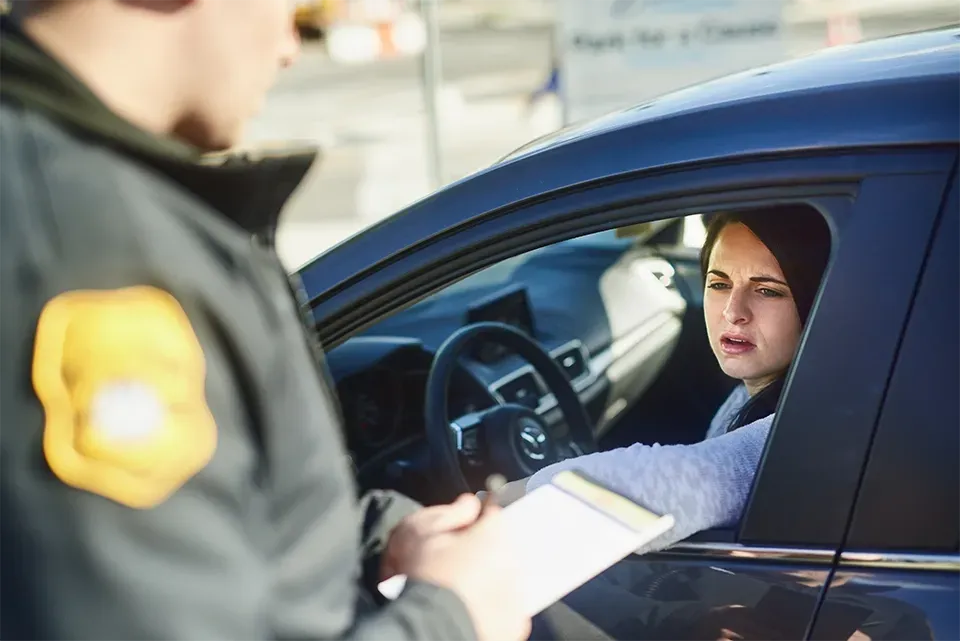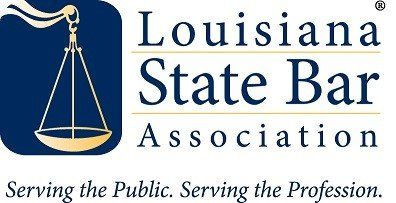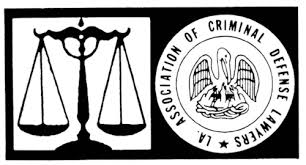Understanding the Difference Between a DUI and a DWI
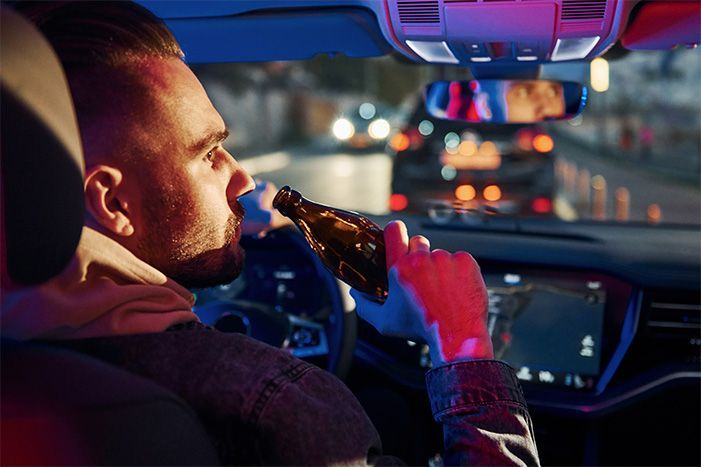
We've all heard the terms DUI and DWI tossed around in conversations, on the news, or perhaps in courtroom dramas. These acronyms have become part of our cultural lexicon, often used interchangeably when discussing drunk driving incidents. But what do they actually mean, and is there a difference between a DUI and DWI?
In this article, we'll demystify these terms, focusing on Louisiana's laws while also shedding light on how they're interpreted across the United States.
Defining DUI and DWI
Let’s start with the basics. What exactly do these acronyms mean?
- DUI stands for “Driving Under the Influence” of alcohol or other substances.
- DWI stands for “Driving While Intoxicated” or “Driving While Impaired”.
Both terms describe offenses related to impaired driving, which can include alcohol, drugs, or a combination of both.
The specific terminology and laws can vary depending on where you are in the United States. In some states, DUI and DWI are used interchangeably, while others draw a distinction between the two.
For instance, in some jurisdictions, a DUI might refer specifically to driving under the influence of alcohol, while a DWI could encompass impairment from alcohol, illegal drugs, prescription medications, or even over-the-counter drugs that affect one’s ability to drive safely.
Drunk Driving Laws and Terminology
As just mentioned, when it comes to impaired driving laws, the terminology can vary significantly across different states. Some states use terms like OWI (Operating While Intoxicated) or OUI (Operating Under the Influence) instead of, or in addition to, DUI and DWI. This variety in terminology can make it challenging for you to understand the specific laws that apply in your area or when traveling to different states like Louisiana.
Louisiana primarily uses the term DWI. This is the official term used in Louisiana state law for offenses related to operating a vehicle while under the influence of alcohol or drugs.
Understanding the specific laws and terminology in your state is important if you ever find yourself facing drunk driving charges because the consequences can be serious, including:
- Jail time
- Hefty fines
- License suspension
Blood Alcohol Concentration (BAC) and Legal Limits
Now, let’s talk about something else you’ve probably heard of before: Blood Alcohol Concentration, or BAC for short, which is a measure of your blood alcohol content.
BAC is like a breathalyzer for your bloodstream. It measures the amount of alcohol floating around in your blood. The legal limit for BAC varies by state, but it’s typically 0.08% for drivers over 21.
In Louisiana, the legal BAC limit is 0.08% for drivers aged 21 and over. However, it’s important to note that there are different limits for certain categories of drivers:
- For drivers under 21 years old, the limit is 0.02%
- For commercial drivers, the limit is 0.04%
Specifically, Louisiana Revised Statutes 14:98 states:
“98. Operating a vehicle while intoxicated
(1) The crime of operating a vehicle while intoxicated is the operating of any motor vehicle, aircraft, watercraft, vessel, or other means of conveyance when any of the following conditions exist:
(a) The operator’s blood alcohol concentration is 0.08 percent or more by weight based on grams of alcohol per one hundred cubic centimeters of blood.”
It’s worth noting that while 0.08% is the legal limit, a driver can still be charged with a DWI if they show signs of impairment, even if their BAC is below this threshold. The law also specifies different limits for underage drivers and commercial vehicle operators, as mentioned above.
And remember, you can be charged with a DUI or DWI if your BAC is above the legal limit, even if you don’t feel drunk or impaired. It’s like getting a speeding ticket when you thought you were going the speed limit. The law doesn’t care how you feel, only what the numbers say.
Understanding BAC and Its Role in DUI/DWI Cases
BAC is a big deal in DUI and DWI cases. It’s like the smoking gun of drunk driving evidence. Here’s why it matters:
- It provides concrete evidence of a driver’s level of intoxication.
- A high BAC can result in more severe DUI charges, including longer jail time and higher fines.
- Understanding how BAC is measured and used in cases is essential for building a strong defense.
Consider BAC as a critical threshold in driving safety. Even if you feel fine, the law draws a clear line: cross that BAC limit, and you’re legally impaired, even if you don't feel drunk or impaired.
How Drunk Driving Laws Vary by State
Drunk driving laws are like snowflakes - no two states are exactly alike. Some states crack down hard on drunk driving, while others are a bit more lenient.
For example, Texas law has specific definitions and penalties for DUI and DWI offenses, which can vary significantly from those in other states.
Variations in DUI/DWI Laws Across the US
Let’s look at some ways DUI and DWI laws can differ across the country:
- Penalties: Some states throw the book at repeat offenders, while others might give a bit more slack.
- Technology: Some states require ignition interlock devices (think of it like a breathalyzer for your car), while others don’t.
- Terminology: As we mentioned earlier, some states use DUI, others use DWI, and some use both with different meanings.
For instance, DWI stands for “Driving While Intoxicated,” which is distinct from DUI in some states.
Consequences of a DUI/DWI Conviction
Getting convicted of a DUI or DWI has serious consequences. Here’s what you might be looking at:
- Jail time: You could be spending some time behind bars.
- Fines: Prepare to open your wallet wide.
- License suspension: Say goodbye to your driving privileges for a while.
- Increased car insurance rates: Your budget takes another hit.
- Permanent record: This conviction could follow you around for life.
Impact on Insurance Rates and Driving Record
Let’s zoom in on those insurance rates for a moment. Insurance companies view drivers with a DUI or DWI conviction as high-risk. And as a high-risk driver, they’re going to charge you more.
And that permanent mark on your driving record can make it much harder to get insurance or even land certain jobs in the future. It’s like a tattoo you can’t hide - it’s always there, affecting your life in ways you might not expect.
SR-22 Requirements and Insurance Implications
Ever heard of an SR-22? If you get convicted of a DUI or DWI, you might become very familiar with it. An SR-22 is a certificate of financial responsibility that’s required for drivers convicted of certain offenses, including DUI and DWI. An SR-22 is often required after a DUI conviction to prove that you have adequate insurance coverage.
Here’s what you need to know about SR-22s:
- It’s not actually insurance, but a form your insurance company files with the state.
- It proves you have the minimum required auto insurance coverage.
- This form is typically required after a DUI conviction to ensure you meet the minimum insurance requirements.
- It can significantly increase your insurance premiums.
- They’re typically required for 3-5 years after a conviction.
- They can result in even higher insurance rates.
- They come with more stringent insurance requirements.
Think of an SR-22 like a financial ankle monitor - it’s there to make sure you’re following the rules, but it marks you as a high-risk driver, and you’ll pay for it.
How Long Does a DUI Stay on Your Insurance Record?
A DUI conviction typically remains on your insurance record for 3-5 years, depending on your state and insurance company. During this time, you're likely to see significantly higher premiums as you'll be viewed as a high-risk driver.
The impact on your driving record can last even longer, potentially affecting your ability to obtain certain jobs or licenses.
Understanding the Impact on Insurance Rates
Let’s put some numbers to this. According to one insurance source, drivers with a DUI pay an average of $1,495 more per year, or about $125 more per month, for car insurance compared to drivers without a DUI. That’s a lot of money that could be spent on, well, pretty much anything else!
The financial burden of a DUI conviction can be significant, with increased insurance rates adding to the overall cost.
Remember, the length of time a DUI stays on your record can impact these rates. The longer it’s there, the longer you’ll be paying those higher premiums.
You Can Be Charged with a DUI or DWI Even If Your Vehicle Is Parked
Here’s an important fact about DWIs that many people aren’t aware of: in several states, including Louisiana, you can be charged with a DWI even if your vehicle isn’t moving and the engine isn’t running. Sounds crazy but it’s true.
So how can you get a DUI/DWI without driving? Here are a few scenarios:
- You’re found sleeping in the driver’s seat with the keys in the ignition.
- Your car is parked on the side of the road, and you’re in the driver’s seat.
- You’re operating a non-motorized vehicle while intoxicated (like a bicycle in some states).
In such scenarios, you can still be considered a drunk driver under the law because you're deemed in "actual physical control" of the vehicle while intoxicated. It’s like being the captain of a ship - you’re responsible even if the ship is docked.
So if your sitting in the driver’s seat of a parked car with the keys in your possession and your Blood Alcohol Concentration is over the limit, you could potentially be charged with a DUI or DWI.
That might not seem logical or fair to you, but the law is there to prevent potentially dangerous situations before they occur.
Penalties for a First-Time Offender
If you’re facing your first DUI or DWI charge, you might be wondering what kind of penalties you’re looking at. While it varies by state, here’s a general idea:
- Fines: Usually ranging from $500 to $2,000
- License suspension: Typically 90 days to a year
- Community service: Often 20-50 hours
- Possible jail time: Usually up to 6 months (but often suspended for first-time offenders)
Understanding the penalties for drunk driving offenses is crucial for anyone facing their first DUI or DWI charge.
In some states, first-time offenders might be eligible for a diversion program or deferred adjudication. These programs can help you avoid some of the harsher penalties if you complete certain requirements.
The Penalties for a First DWI Offense in Louisiana
Let's look specifically at Louisiana's penalties for a first DWI offense, according to Louisiana Revised Statute 14:98.1:
- Fines: $300 to $1,000
- Jail time: 10 days to 6 months
- Community service: At least 32 hours (if jail time is suspended)
- Substance abuse program: Participation required
- Driver improvement program: Participation required
- License restriction: For at least 6 months, the offender may not operate a motor vehicle unless it's equipped with an ignition interlock device
Additional penalties may apply based on blood alcohol concentration (BAC):
- For BAC of 0.15% or higher but less than 0.20%:
- At least 48 hours must be served without benefit of parole, probation, or suspension of sentence
- Driver's license suspension for 2 years
- For BAC of 0.20% or higher:
- Minimum fine increases to $750
- At least 48 hours must be served without benefit of parole, probation, or suspension of sentence
- Driver's license suspension for 2 years
It's important to note that the court may allow for home incarceration in lieu of or in addition to imprisonment. Also, offenders may apply for a restricted driver's license during the suspension period if they have an ignition interlock device installed.
Remember, these penalties can increase significantly for subsequent offenses or if there are aggravating factors like having a very high BAC or having a minor in the vehicle.
State-Specific Laws and Penalties
Remember how we said drunk driving laws vary by state? Let’s look at a few examples:
- In Louisiana, a first-offense DWI can result in a fine of up to $1,000 and up to 6 months in jail.
- In Texas, a first-offense DWI can result in a fine of up to $2,000 and up to 180 days in jail. Under Texas law, the penalties for a first-offense DWI can be severe, including fines and jail time.
- In California, a first-offense DUI can result in a fine of up to $1,000 and up to 6 months in jail.
These differences underscore why it’s so important to understand the specific laws in your state or the state you’re visiting and to seek legal counsel if you’re facing charges.
How an Attorney Can Help with DUI and DWI Charges
Facing a DWI or DUI charge can feel overwhelming. That’s where a good DWI attorney comes in. They’re like your personal guide through the legal maze. An experienced defense attorney can help you navigate the complexities of DWI charges and build a strong defense.
Understanding the Role of a DWI Lawyer
A DWI lawyer can:
- Provide guidance throughout the legal process. They can help you understand the implications of DWI charges and guide you through the legal process.
- Build a strong defense strategy
- Negotiate with prosecutors
- Advocate for your rights in court
Your DWI lawyer can also explain what’s happening in terms you can understand and help you make informed decisions about your case.
Conclusion
Navigating the world of DUIs and DWIs can feel like trying to read a map in a foreign language. The terminology varies, the laws change from state to state, and the consequences can be severe.
Remember these key points:
- DUI (Driving Under the Influence) and DWI (Driving While Intoxicated or Impaired) both refer to offenses related to operating a vehicle while impaired by alcohol, drugs, or other substances. However, the specific meanings, usage, and legal implications of these terms can vary significantly from state to state.
- BAC is a crucial factor in DUI/DWI cases, and being over the legal limit can result in charges even if you don't feel impaired.
- The consequences of a conviction can include jail time, fines, license suspension, and long-term impacts on your insurance rates and driving record.
- Understanding the specific laws in your state or the state you're visiting is important for navigating a DUI or DWI charge.
And remember, even if you "feel fine" after drinking, your judgment and reflexes may still be impaired, and your BAC may be over the legal limit. The safest choice is always to avoid driving after consuming any amount of alcohol or drugs. It's far better to call a taxi, use a ride-sharing service, or designate a sober driver than to risk the severe legal, financial, and personal consequences of a DUI or DWI. When in doubt, err on the side of caution – your life and the lives of others on the road are worth more than the inconvenience of finding an alternative ride home.
If you or a loved one needs help defending a charge related to a DUI or DWI in New Orleans, don't go it alone. Contact experienced DWI attorney Lance J. Robinson for a free consultation, expert guidance, and legal representation. Remember, when it comes to DUI and DWI charges, knowledge is power - and the right legal help can make all the difference.
